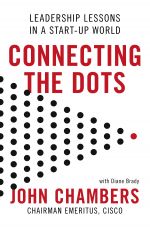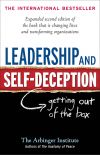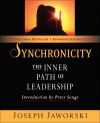Правообладателям!
Представленный фрагмент книги размещен по согласованию с распространителем легального контента ООО "ЛитРес" (не более 20% исходного текста). Если вы считаете, что размещение материала нарушает ваши или чьи-либо права, то сообщите нам об этом.Читателям!
Оплатили, но не знаете что делать дальше?
Текст бизнес-книги "Connecting the Dots: Leadership Lessons in a Start-up World"
Автор книги: John Chambers
Раздел: Жанр неизвестен
Текущая страница: 1 (всего у книги 1 страниц)

Copyright
HarperCollinsPublishers 1 London Bridge Street London SE1 9GF
www.harpercollins.co.uk
First published in the US by Hachette Books 2018
This UK edition published by HarperCollinsPublishers 2018
FIRST EDITION
© John Chambers 2018
Cover layout design © HarperCollinsPublishers Ltd 2018
A catalogue record of this book is available from the British Library
John Chambers asserts the moral right to be identified as the author of this work
All rights reserved under International and Pan-American Copyright Conventions. By payment of the required fees, you have been granted the nonexclusive, non-transferable right to access and read the text of this e-book on screen. No part of this text may be reproduced, transmitted, downloaded, decompiled, reverse engineered, or stored in or introduced into any information storage retrieval system, in any form or by any means, whether electronic or mechanical, now known or hereinafter invented, without the express written permission of HarperCollins e-books.
Find out about HarperCollins and the environment at www.harpercollins.co.uk/green
Source ISBN: 9780008297039
Ebook Edition © October 2018 ISBN: 9780008297060
Version 2018-09-13
Cover
Title Page
Copyright
Dedication
Introduction
I The Connected Leader (The Mindset for Leadership Success)
Chapter One The Lessons of West Virginia (Disrupt, or Be Disrupted)
Chapter Two Act Like a Teenager and Think Like a Dyslexic (How to Spot Market Transitions)
Chapter Three Dream Big and Be Bold…Focus on the Outcome (Play out the Entire Chess Game Before You Make the First Move)
II The Connected Company (The Playbook for Corporate Success)
Chapter Four Embrace Your Purpose, Not Your Products (How Cisco Beat Its Competitors)
Chapter Five After Disaster Strikes (Setbacks Can Make You Stronger)
Chapter Six My Buyer’s Guide to Successful Acquisitions (Based on 180 Personal Experiences)
III Connecting with Customers (The Playbook for Shared Success)
Chapter Seven Build Relationships for Life (Sell People Only What They Need)
Chapter Eight How to Build a Winning Team (Focus on Culture, Diversity, and Results)
Chapter Nine Get Your Message Out (With or Without the Media)
IV Connecting Beyond Borders (The Playbook for a Startup World)
Chapter Ten Bet on Innovative Leadership (How to Partner with Great Leaders)
Chapter Eleven What Entrepreneurs Want to Know (13 Typical Questions)
Chapter Twelve It’s All About Startups, Startup Nations, and a Startup World (My Next Chapter and Changing the World…JC2 Ventures)
Chapter Thirteen Reinvent Yourself (What’s Next for Me—and All of Us)
Acknowledgments
Praise for Connecting the Dots
List of Searchable Terms
About the Publisher
To my family:
For Jack and June Chambers, whose lessons shaped me
For Elaine, whose love sustains me
For John and Lindsay, who inspire me
For Autumn and Jack, who fill me with joy
And for the people who’ve become family along the way,
from my daughter-in-law Ashley to the employees of Cisco
and the startups in JC2. I’ve learned so much
and love you all.
–John
INTRODUCTION
I used to think the best time to have a book about yourself is after you’re dead. I don’t like to sing my own praises and I’m all too aware of my weaknesses. I also know that anything I have accomplished in my life, from overcoming dyslexia to building Cisco, has been because of the team of people around me. For 20 years, I had the incredible privilege to lead a company that connected people to the internet and changed the way we work, live, play, and learn. I view myself as a coach, as someone who builds great teams, and as an adviser. I love to teach. What changed my mind about writing a book wasn’t so much the lessons of the past as the opportunities of the future. We’re on the cusp of a revolution that will take the impact of the internet and not only multiply it but play out faster than any disruption we’ve ever seen. Within a decade, some 500 billion cars, fridges, phones, robots, and other devices will likely be communicating online. As an investor and adviser to startups worldwide, I’m incredibly excited by the potential for new technologies to foster longer lives, safer communities, and greater global prosperity, as well as to create hundreds of millions of new jobs. But I also now understand the fears because this disruption will be so brutal that 40-plus percent of businesses today won’t be here 10 years from now. We’re already seeing that impact start to play out in political movements, job losses, and broken business models. Meanwhile, the people at the forefront of this change often seem tone-deaf to the downside of this disruption and unaware of the risks that they face.
A good friend once told me that you can’t describe a company or a leader as “great” until they have gone through a near-death experience and come back. Steve Jobs did it with Apple, as did Jack Welch at GE. In 2000, Cisco was the most valuable company on the planet. We had grown 65 percent every year for a decade and I was treated as a Silicon Valley celebrity, complete with paparazzi following me home from restaurants and praise in the media as America’s “best boss” and “top CEO.” A year later, after the dot-com crash had wiped out a quarter of our customers and 80 percent of our stock price, my face was in the media for a much different reason. We survived that crisis and five other downturns that could have killed our business, as it did many of our competitors. We learned how to reinvent ourselves again and again.
That ability to reinvent not only your company but yourself is the critical skill for every leader in the digital age. It doesn’t matter if you are leading a company of 2 people or 200,000 people: You have to learn to be fast, flexible, and ahead of the curve. What really set us apart at Cisco were four key strengths: an ability to anticipate and get ahead of market transitions, innovation processes that could be replicated at scale, a strong culture that was focused on customers, and a network architecture that gave us incredible flexibility to innovate and move into new markets. None of these things happened because of dumb luck or the boss’s winning personality. These practices start with some of the fundamental values and lessons that I learned from my family while growing up in West Virginia. They incorporate what I have learned from many great leaders both inside and outside Cisco, and they’ve been honed through practice and some pain. I watched my first two employers, IBM and Wang, go from being giants in the industry to failing, and learned why. You have to compete in the moment but also rise above the short-term wins or problems to think 3, 5, and even 10 years out to pursue bigger and bolder dreams.
At Cisco, we were sometimes too early or we took on too much, but the reason we ultimately stayed on top is that we focused on connecting the dots. We developed a playbook for everything from how we acquired companies to how we managed people, how we dealt with customers to how we digitized countries. Far from slowing us down, these tools allowed us to reinvent the company toward where the world is going instead of where it is today. It’s a powerful skill set that can make any team unbeatable. Whenever I learn something that’s really powerful in my life, I want to pass it along. I’ve had the opportunity to share a number of these lessons with others and I have seen how they work again and again across a range of situations. That’s why I’m writing this book.
The opportunities over the next few decades will be staggering. Every person on the planet has the potential to compete. The average seller on eBay does business in seven countries. With digitization, anyone can innovate and leapfrog the competition at a scale and speed that’s unprecedented. There’s no entitlement, not even for Silicon Valley. I’m now working with entrepreneurs and leaders in the United States, India, France, and other parts of the world who could lead the next great wave of innovation. Through JC2 Ventures, I am investing in and working with startups to help them scale to become the next Cisco. Some of them won’t make it, but I believe that many of them will, creating jobs and opportunities far beyond the scope of anything we can picture right now. What will differentiate the winners from the losers won’t be technology or capital but leadership and a willingness to learn. The lessons and practices that helped me are proving to be powerful for many of the people I coach. As an adviser to President Emmanuel Macron of France and Prime Minister Narendra Modi of India, I’ve seen how visionary political leaders can transform their countries into startup nations. At JC2 Ventures, a company I co-founded to invest in startups and help leaders scale, I’ve seen how the playbooks I used at Cisco can work in businesses as diverse as cricket farming and drone security.
Candidly, I get more credit than I deserve. My success is due to the incredible passion, discipline, innovation, and teamwork of Cisco’s people. Every CEO likes to say that. In my case, it’s definitely true. I’ve worked with many generations of chief financial officers, sales leaders, engineering heads, and other leaders who knew far more about their areas than I ever could. I was lucky to have the most brilliant engineers in Silicon Valley work with me to build products that really changed the game, and I had a job that allowed me to interact with leaders worldwide who inspired me with their vision and taught me how to lead. Most important, I have had Elaine, my best friend and wife for more than 45 years, and our two children—Lindsay and John. They have inspired me, supported me, and put up with my foibles and the frustration of a family member whose passion for the job never turns off. My immediate family treated the people of Cisco as part of our extended family, which reinforced a culture that’s hard to capture in the pages of a book.
A lot of people have come to me over the years, asking me what I’ve learned from my successes and mistakes. One thing I’ve learned is that talking about success is way more fun! The other is that making those mistakes made me stronger. But they don’t make you stronger if you keep doing the same thing instead of adapting to a new reality. The setbacks and the tough times should force you to take stock in your strengths and find new ways to win. When I look back on the incredible competitors who later disappeared, I realize that most of them didn’t fail because they suddenly did the wrong thing. They failed because they kept doing the right thing for too long. The biggest mistake we all make is that we get comfortable and we get disrupted because we don’t disrupt ourselves.
I don’t have all the answers and I expect that many of you will disagree with some of the things that I write in this book. In fact, if you agree with everything I say, I will have failed. I like to take risks and I like to challenge the status quo. I hope you find some inspiration or useful tips from my experiences, especially the mistakes. If our paths cross on our journeys, I look forward to learning from you.
I
THE CONNECTED LEADER (THE MINDSET FOR LEADERSHIP SUCCESS)
Внимание! Это ознакомительный фрагмент книги.
Если начало книги вам понравилось, то полную версию можно приобрести у нашего партнёра - распространителя легального контента ООО "ЛитРес".Правообладателям!
Представленный фрагмент книги размещен по согласованию с распространителем легального контента ООО "ЛитРес" (не более 20% исходного текста). Если вы считаете, что размещение материала нарушает ваши или чьи-либо права, то сообщите нам об этом.Читателям!
Оплатили, но не знаете что делать дальше?







